Thinking Outside the Cubicle
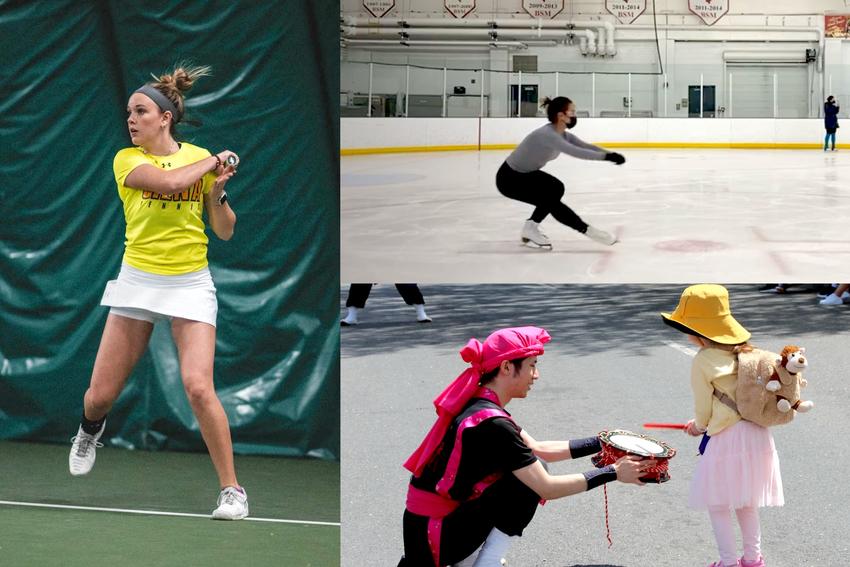
Dental school is tough. It’s all-consuming, and becomes a lifestyle. Not much time is left for personal endeavors. But some learners have made maintaining outside hobbies a priority—and in the process, they’ve become more effective, efficient and empathetic students and providers.
The journey
The path toward dental school looks different for every student. For some, like Charlie Brimacombe, DDS ’26, Melodee Grant, DDS ’25, and Kylie Mullaney, DDS ’25, dentistry was a family affair.
Brimacombe recalls witnessing his father as a role model in the community. “Seeing the effect he had on the community, I learned that dentistry goes beyond treating oral health care needs,” he said.
Mullaney enjoyed spending time in family members’ dental offices, and found herself at home there. Grant pulled out a younger cousin’s tooth when she was in high school, and immediately fell in love with the profession.
Leen Wu, DDS ’25, was inspired to become a dentist after her experience of having braces at age ten.
For others, dentistry is the obvious choice to combine science, art and personality.
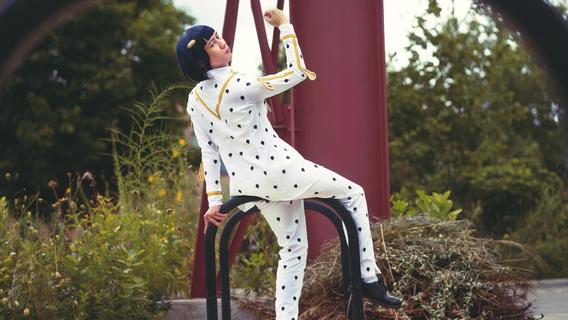
“I loved science and healthcare, but also loved working with my hands,” said Keisha Kappel, DDS ’25. And Jonathan Zhu, DDS ’25, gained skill in sewing thanks to his experience cosplaying, and that talent—combined with a degree in biochemistry—led him to dentistry.
Hannah Kartak, BSDH ’24, MDT ’25, discovered dental therapy through volunteer experience during COVID.
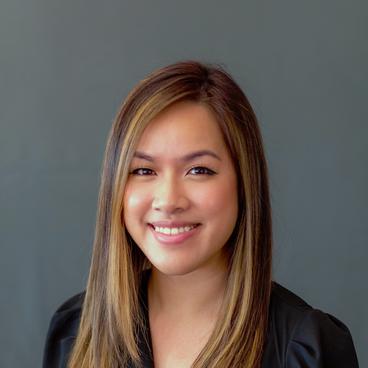
“I fell in love with the fast-paced environment and knew that dentistry was right for me,” she said. Similarly, Quyen Nguyen, DDS ’25, worked as a medical laboratory scientist and fell in love with patient care. Her own oral health struggles growing up and the specialists she saw for them inspired her to become the kind of provider who treated her.
“I fell in love with the fast-paced environment and knew that dentistry was right for me.” — Hannah Kartak, BSDH ’24, MDT ’25
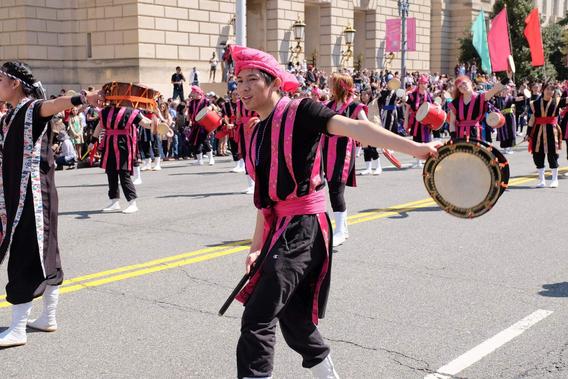
Branching out
For these eight learners, going to dental school alone wasn’t enough. They had areas of expertise, special interests, hobbies or just plain fun activities that mean the world to them.
Several students engage in active hobbies that challenge their bodies and minds.
Brimacombe learned to waterski at age three. After initially resisting—“I didn’t like the idea of falling in water”—he fell in love, eventually joining the team at UW Madison and again at the University of Minnesota. He skis four to five times a week.
Kappel also started waterskiing in her teens, joining friends in her Wisconsin community. Today, she’s a member of a local Twin Cities ski team, where she practices and showcases several days a week.
Kartak danced from a young age throughout high school, when she became a captain and ultimately an assistant coach for her competitive high school team. “Dancing was such a memorable time in my life,” she recalled. “Continuing on as an assistant coach after graduation meant a lot, because the people and the program really shaped me as a person.
Mullaney discovered her love for tennis—much like dentistry—from her family. “From the time I could walk, I was visiting family either on a tennis court or in a dental office,” she recalled. She plays recreationally, coaches and teaches her cousins and other neighborhood children back in New York—whether on FaceTime or on visits back home.
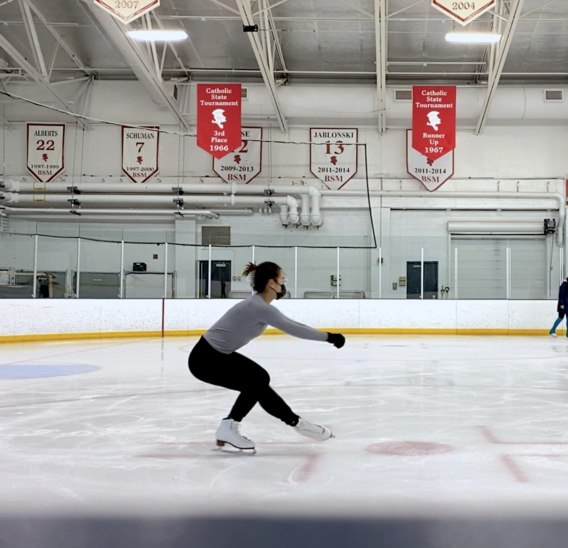
Wu figure skated from age three until ten, at her mother’s prompting. After taking a pause from the sport that never really felt like hers, she re-embarked on her figure skating journey as she began dental school. She takes private and club lessons, balancing her need to focus on schoolwork and her desire to skate.
Others embrace creative endeavors, keeping their hands moving and their skills sharp.
Zhu straddles that line with his passions for cosplaying—a kind of immersive costume making and wearing to represent one’s favorite fictional characters—and Okinawan style Taiko drumming. He fell in love with the particular style of dance in middle school, even choosing his high school after learning that they offered a club with the activity. He went with his club to Washington, DC, to participate in the National Cherry Blossom Festival, and continues to visit the club and practice with them when he returns home.
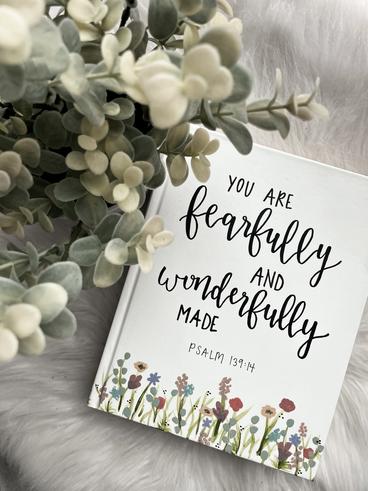
Grant embraces calligraphy, a hobby that started with doodling words and phrases and has grown to painting custom Bibles and other projects. Her shop has slowed down while in school, but continuing to produce art has been “a rewarding experience.”
And Nguyen kept her roots with her home country of Vietnam by learning and teaching Vietnamese. Coming to the United States at age five meant she lacked a solid grasp of either language—so she fully embraced books, reading over 45,000 pages in fifth grade alone, and learning to read and write in English and Vietnamese in the process.
Each hobby, no matter its origin, has been life giving for these learners. For some, like Nguyen and Zhu, the hobbies are mainly in the past—but the community and passions that came with them remain. For others, like Brimacombe, Kappel and Wu, they’re just getting started.
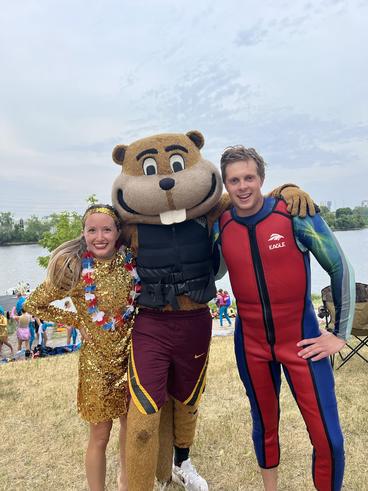
Making it all work
It’s not an easy feat, maintaining a hobby—or an outside life, for that matter—while studying full time. “Dental school kind of takes over your life,” Zhu said.
That’s why he is unable to maintain a stringent practice schedule for drumming these days. Other learners described their schedules as crazy, hectic, stressful or packed.
And yet, the balancing act that is embracing hobbies and school is rewarding in its own right.
“I transitioned away from my teaching role, but have still been in communication with the program to develop lesson plans for the kids,” Nguyen recalled. “Having hobbies and making time to attend events outside of school has helped me feel more up-to-date on what’s happening in the world.”
Mullaney struggled early on to balance school and tennis, but quickly discovered “how important it is to allow yourself to have a break.” She explained, “not only is it a good mental reset, it teaches you to be good with time management.”
“How important it is to allow yourself to have a break? Not only is it a good mental reset, it teaches you to be good with time management.” — Kylie Mullaney, DDS ’25
Kappel agreed, stressing the value of the physical and mental reset that waterskiing gives her. “It’s a great break, to go out and be active for several hours,” she said. “It benefits my learning, even though I’m not studying.”
For Wu, setting up lessons on her own terms has helped. She can take a pause when school gets too stressful—or she can set up lessons to force herself to get out of the lab. “It’s made me more efficient,” she said. “I can reset my mind, and when I have more things in my schedule, it encourages me to finish my work and not procrastinate.”
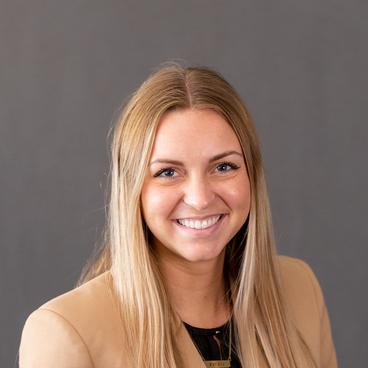
Grant also finds herself doing better in school when her schedule is fuller. “Cutting off hobbies and dedicating time to school alone will burn you out,” she said. “In contrast, allowing myself to have fun and keep up hobbies refreshes my spirit, which motivates me to do my schoolwork. It’s all about finding that work-life balance— and recognizing that balance looks different for everyone.”
Creating their best selves
Having a hobby makes life more rich and meaningful—but for these learners, the hobbies they’ve chosen prepare them to be better clinicians, too.
Some learners’ hobbies boost the same skill sets that dentistry encourages— Grant and Zhu maintain excellent dexterity with calligraphy and sewing. “You have to have an eye for detail, and a game plan for how to approach things with cosplaying,” said Zhu. “That’s also been how I approach difficult cases. The eye for detail helps.”
Perhaps most importantly, hobbies, sports and activities connect us to people in different stages of life—people we may not have otherwise met. This openness, conversation and engagement prepares more compassionate, excited clinicians.
“With Taiko drumming and cosplaying, you meet all kinds of people,” Zhu said. “That’s helped me practice my people skills and become more empathetic. That’s so important in the healthcare profession.”
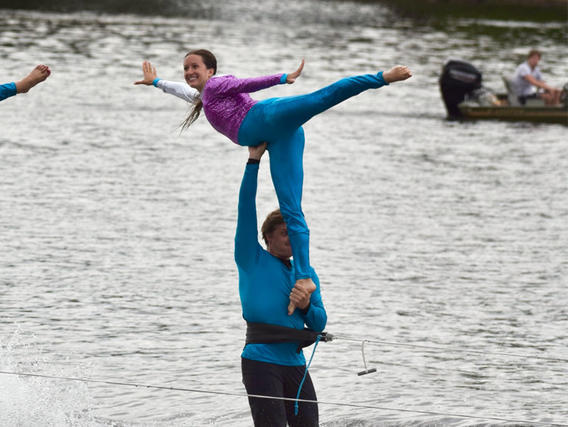
Kappel has enjoyed meeting and waterskiing with people of all ages, from toddlers to older adults. “Knowing how to talk to different people can be difficult, and it’s really helped me in the cubicle,” she said.
Similarly, Brimacombe says participating in an impact sport has made him more empathetic and understanding toward others in sports who are interested in maintaining proper oral health. “It’s just another way to connect with patients and understand them,” he said.
And while Kartak no longer dances competitively, the skills she gained have made her a better dental therapist, too. “I walked away with a strong awareness of what it means to be a leader,” she said. “I see those leadership qualities coming out of me now. We’re part of a care team, and it takes all of us working together to be successful. I am thankful I learned so much about being on a team before joining the program.”
No matter the activity, developing personal and physical skills has improved these learners’ lives—and the lives and wellbeing of their patients, today and in the future.
This story originally appeared in the 2023 edition of Dentistry Magazine.